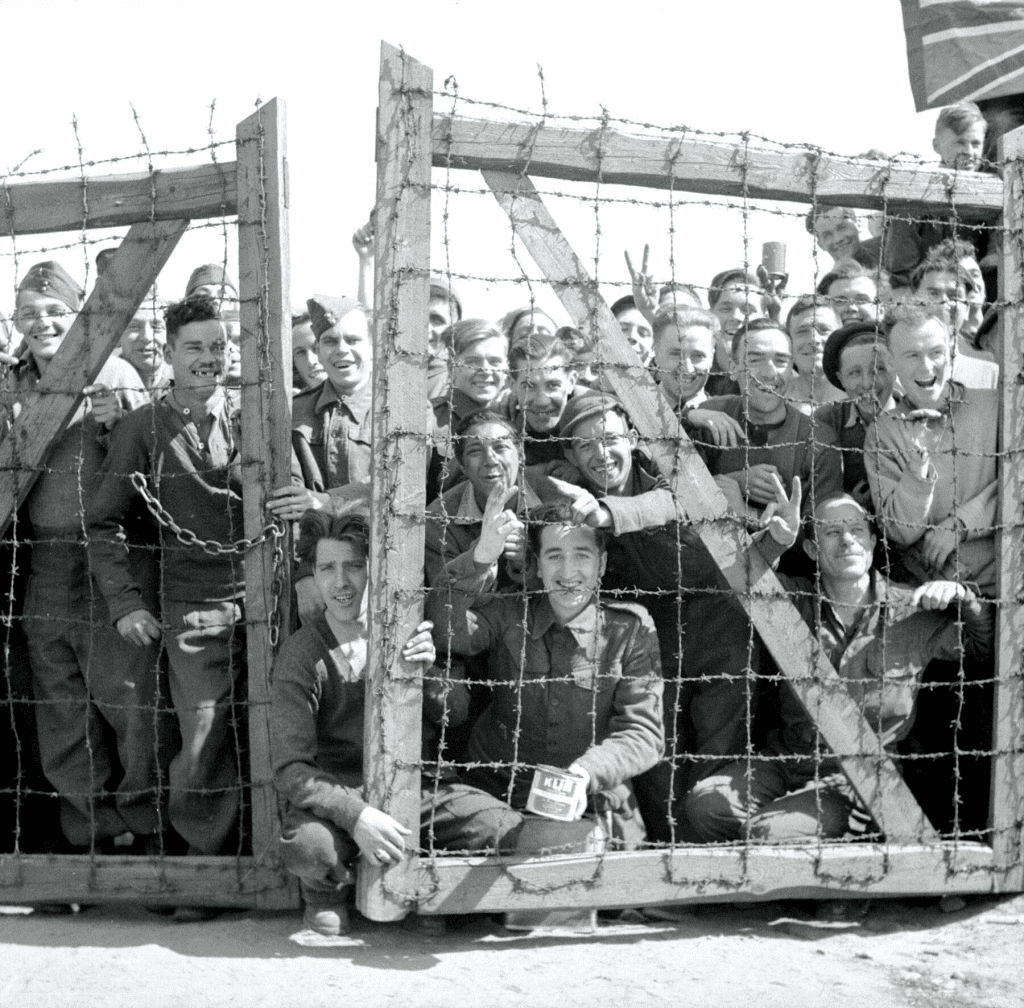World War II was a time of brutal conflict, political extremism, and unimaginable human suffering. But within this dark chapter of history, an unexpected story of humanity and compassion quietly unfolded far from the front lines inside Canadian prisoner of war camps.
From 1939 to 1945, over 6,000 German soldiers were held as prisoners of war in camps spread across rural Canada. While wartime captivity usually conjures images of harsh treatment and hostility, the experience for many POWs in Canada was quite the opposite. What unfolded in these camps was not just a tale of confinement, but one of mutual respect, surprising friendships, and even life-changing gratitude.

Kindness from the Other Side
Many of the Canadian guards assigned to watch over German POWs were veterans of World War I men who had seen the horrors of combat firsthand. Instead of cruelty, they extended a remarkable level of respect and fairness to their captives. Over time, a quiet trust grew between the two sides. It was not unusual for Canadian guards to leave rifles unattended or to speak freely with the prisoners. In some cases, prisoners were even allowed outside the camp fences to help with local farm work, completely unguarded.

This treatment was not accidental. Canada had signed on to the Geneva Convention, which required humane treatment of prisoners, but the atmosphere in these camps went beyond basic international law. There was a genuine effort to uphold dignity even in wartime.
Inside the Camps: Order, Learning, and Life
Life inside Canadian POW camps was surprisingly structured and enriching. The prisoners were provided with good food, clean accommodations, and opportunities for physical exercise. Many even participated in cultural and educational programs, studying languages, painting, playing music, and attending lectures.
Video:
German POWs Stayed in Canada#Weird #History #WW
Some camps had organized soccer leagues and small theaters. Red Cross parcels kept morale high. For men who had come from bombed-out cities and the brutality of combat, the quiet forests and snowy fields of Canada offered a kind of peace they hadn’t known in years.
And perhaps even more important than material comfort was the sense of being treated as human beings. Prisoners recalled being addressed by name, having their complaints listened to, and even forming bonds with local civilians during their work assignments.
Over 600 Escape Attempts But Few Escaped Permanently
Despite the humane treatment, not everything was idyllic. There were still over 600 escape attempts made by German POWs in Canada. However, few of these escapes were violent or successful. Most ended with the prisoners voluntarily returning to camp or being recaptured without incident.
In fact, some escape attempts seemed more about adventure or curiosity than a desperate desire for freedom. One former POW reportedly said, “We had it better in the camp than the people outside during wartime.”

“The Best Thing That Happened to Me”
After the war, something unusual occurred. A significant number of former German prisoners expressed a desire to stay in Canada. They had grown fond of the country and its people. For some, it was their first time experiencing kindness from those once considered enemies.
Video:
Canadian Troops Guarding German Prisoners Of War (0)
One former POW later described his years in Canadian captivity as “the best thing that happened to me.” Others returned to Canada years later, not as prisoners, but as immigrants choosing to make their lives in the country that once held them behind fences.
These stories stand in sharp contrast to the usual narratives of war. They remind us that even in times of division and destruction, acts of decency can change lives, shape perceptions, and sow the seeds of reconciliation.

A Legacy of Quiet Humanity
The legacy of Canada’s POW camps is not one of oppression or brutality, but of compassion during conflict. The kindness shown to enemy soldiers demonstrated the power of empathy even when extended across battle lines. It challenged the notion that war must always be fought with hate, and it showed how treating others with dignity can leave a lasting mark one that transcends nations and generations.
Today, the stories of these POWs serve as a powerful reminder that in even the darkest times, humanity has the capacity to rise above fear and violence. Sometimes, the most unexpected chapters of history are the ones that restore our faith in what people can be.



